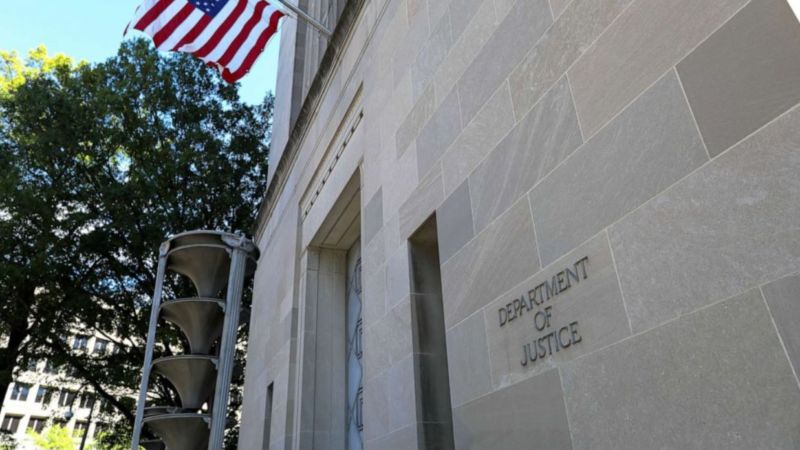In the last fiscal year, the US government recovered the second-largest total in in settlements and judgments related to the False Claims Act
The U.S. Department of Justice (DOJ) last year recovered more than $5.6 billion in settlements and judgments from civil cases involving fraud and false claims against the government, the vast majority of which involved healthcare claims. The recovery total in the fiscal year that ended Sept. 30, 2021, is the second largest in the history of the False Claims Act and the largest since 2014.
“Ensuring that citizens’ tax dollars are protected from fraud and abuse is among the department’s top priorities,” said Acting Assistant Attorney General for the DOJ’s Civil Division Brian Boynton. “The False Claims Act is one of the most important tools available to the department both to deter and to hold accountable those who seek to misuse public funds.”
Of the more than $5.6 billion reported, nearly 90% (more than $5 billion) related to “matters that involved the healthcare industry,” including drug and medical device manufacturers, managed care providers, hospitals, pharmacies, hospice organizations, laboratories, and physicians. The $5 billion represents only the federal portion recovered. In many of the cases, the DOJ recovered additional amounts for state Medicaid programs.
Under the False Claims Act, individuals can initiate lawsuits alleging false claims on behalf of the government. False claims Act whistleblowers filed 598 lawsuits in FY 2021, and the DOJ reported settlements and judgments exceeding $1.6 billion in cases filed this year and prior suits. When the government is successful in a lawsuit initiated by a whistleblower, the whistleblower can receive between 15% and 30% of the recovered funds.
Opioid-related enforcements
The largest False Claims Act settlement in the past year came from “significant resolutions with prescription opioid manufacturers”, including Indivior and Purdue Pharma. Indivior agreed to pay $209.3 million as part of a $600 million global resolution relating to the promotion of an opioid-addiction-treatment drug, Suboxone, to physicians who were writing prescriptions that were not medically necessary and were often diverted into the illicit drug market. Indivior made “false and misleading claims” that Suboxone was “less susceptible to diversion and abuse,” according to the government.
Purdue agreed to an “allowed, unsubordinated, general unsecured bankruptcy claim for $2.8 billion” to resolve civil allegations that it promoted its opioid products to healthcare providers that it knew were prescribing opioids for uses that were “unsafe, ineffective, and medically unnecessary, and that often led to abuse and diversion.” The settlement also resolved allegations that Purdue paid kickbacks to doctors and others to increase the prescribing of its opioids. Individual members of the founding Sackler family who were shareholders and board members of Purdue agreed to a settle separate claims relating to the company’s marketing of OxyContin to certain “extreme, high-volume prescribers.”
Medicare Advantage enforcement
The DOJ also pursued enforcement in FY 2021 against several insurers selling Medicare Advantage plans, also known as Medicare Part C plans, for allegedly documenting increased risk factors for beneficiaries in order to increase the capitated payment rate Medicare would pay the plans for those beneficiaries. More than 26 million Medicare beneficiaries were enrolled in Part C plans in 2021 with projected payments from the federal government of more than $343 billion to the private insurers offering those plans.
Sutter Health paid $90 million to resolve allegations relating to “unsupported diagnosis codes” that resulted in inflated payments. Kaiser Foundation Health Plan of Washington paid $6.3 million to resolve similar allegations.
Unlawful kickbacks
Arriva Medical LLC, a mail-order diabetic testing supply company, and its parent, Alere Inc., agreed to pay $160 million to resolve allegations that Arriva paid kickbacks to Medicare beneficiaries by providing them free or no-cost diabetic testing equipment and by waiving co-payments for diabetic equipment and supplies.
The DOJ also resolved allegations against Athenahealth Inc. that the company invited customers and prospective customers to “lavish all-expense-paid sporting, entertainment, and recreational events” to generate sales of it electronic health records product. Athenahealth paid $18.25 million to resolve the allegations.
Generic drug manufacturers Taro, Sandoz, and Apotex paid more than $400 million to resolve allegations that the three companies violated the anti-kickback statute through arrangements on “price, supply, and allocation of customers with other pharmaceutical manufacturers” as part of a price-fixing conspiracy.
Unnecessary medical services
SavaSeniorCare LLC agreed to pay $11.2 million for alleged false claims for rehabilitation therapy services provided as a result of “aggressive corporate targets without regard for its patients’ actual clinical needs.” The settlement also resolved allegations that Sava provided “grossly and materially substandard and/or worthless skilled nursing services.”
Other unnecessary medical service resolutions included:
-
-
- Alere paid $38.75 million to resolve allegations that it billed for defective point-of-care testing devices that Medicare beneficiaries used to monitor blood coagulation when taking anticoagulant drugs.
- Apria Healthcare LLC paid $40.5 million to resolve allegations it submitted false claims for the rental of costly non-invasive ventilators to Medicare beneficiaries who did not need or were not using the machines.
- St. Jude Medical Inc. paid $27 million to settle allegations that it “knowingly sold defective implantable heart devices” and failed to disclose serious adverse health events related to the devices.
-







